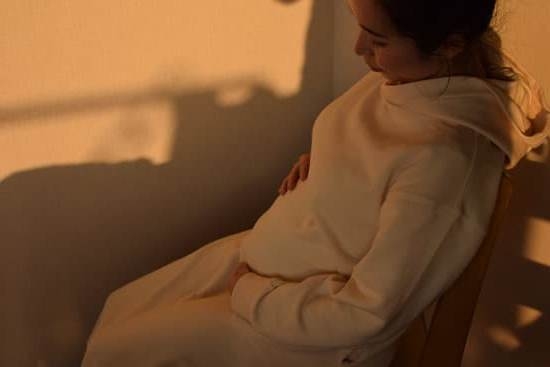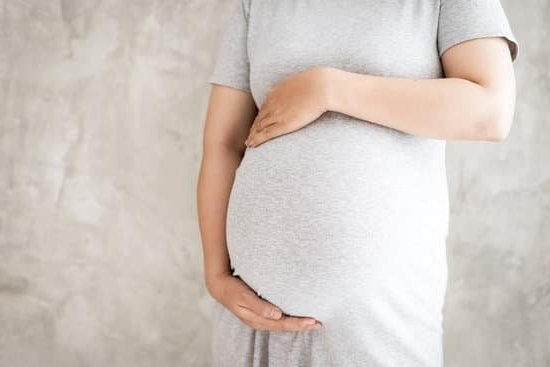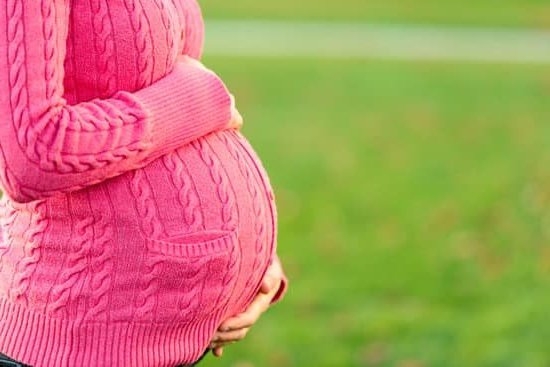Introduction
Pregnancy is an exciting yet daunting time—especially if you’re trying to conceive. When expecting a new baby, it’s important to become aware of the early signs that you may be pregnant so that you can take the necessary steps to ensure a happy, healthy pregnancy.
The earliest sign of pregnancy is usually a missed period. The hormonal changes associated with conception increase your body’s production of progesterone, which can cause your period to stop or become irregular. It is also possible to experience light spotting or bleeding for a few days following conception, though this does not always happen. Other early symptoms include breast tenderness and fatigue; these are usually noticed anywhere from one to two weeks after conception. Some women also notice an increase in their appetite and heightened food cravings as well as sickness similar to morning sickness in the first trimester of pregnancy. As the weeks progress and hormone levels rise, some further signs could include dizziness, headaches, and changes in vaginal discharge—though these are more commonly experienced later in a woman’s pregnancy.
Although missing a period and experiencing some other minor discomfort could indicate that you’re pregnant, only a blood test can give an exact diagnosis. If you believe yourself to be pregnant it is important to visit your doctor as soon as possible for professional advice on taking proper care of yourself during the course of your pregnancy.
Physical Signs of Pregnancy
The earliest physical signs of pregnancy can start to show as soon as 2-3 weeks after conception. During the first trimester, you may experience a range of common pregnancy symptoms such as tiredness, nausea and vomiting (morning sickness), heightened sense of smell, increased urination, breast changes, constipation and many more.
As the pregnancy progresses, other physical signs will become more evident. Your breasts will continue to grow in size and become even fuller and heavier than at the onset of your pregnancy. You may also experience certain discomforts such as backache or abdominal cramps due to increased hormones and growth of the uterus. It is common for pregnant women to feel dizziness or faintness due to a decrease in blood pressure levels caused by hormonal changes that influence circulation. Additionally, your skin may develop dark patches on your face (known as the mask of pregnancy) due to enhanced pigmentation caused by an increase in hormones like estrogen. As you near your second trimester, you will likely start showing visible signs of an expanding waistline due to the growing baby inside your womb!
Psychological Changes That Can Indicate Pregnancy
The first signs that you may be pregnant can be psychological. While physical symptoms like morning sickness or breast tenderness might not appear until a few weeks after conception, your emotional state can indicate pregnancy sooner. It is important to keep close track of your mood patterns, so you can recognize any changes from the norm.
Common emotional shifts associated with early pregnancy include heightened levels of excitement followed by periods of fatigue and exhaustion. These emotions can be more extreme in some cases and present as growing anxiety or even depression. Women may also experience increased sensitivity to different smells, tastes, and even sound — similar to how their bodies respond when about to get sick with a cold or flu. Breaking down tasks into smaller segments or giving yourself permission to take more rest breaks throughout the day are ways to manage these bursts. It is also beneficial to practice positive self-talk and express your needs at home so that you can make sure you have the support you need during this time of transition. Talking with a mental health professional could also help constitute better coping strategies during pregnancy or if needed, provide assessment for underlying causes of changes in behaviour or energy levels.
Common Testing Practices for an Early Pregnancy Diagnosis
When a woman experiences the usual signs of pregnancy, such as missed periods, morning sickness, fatigue, and breast tenderness, she may consider visiting her doctor for an early pregnancy diagnosis. However, a medical professional will typically use additional methods to determine if someone is pregnant.
Common testing practices for an early pregnancy diagnosis include blood tests and ultrasounds. A blood test can measure the levels of hCG (human chorionic gonadotropin), which is the hormone produced when pregnancy occurs. It may be done as early as 7-10 days after conception. An ultrasound can also be used to detect if a fetus exists at 8 weeks gestation or later and can provide imagery of the unborn baby. Additionally, a pelvic exam may be used to determine if any physical changes have occurred in the uterus or cervix due to pregnancy.
In addition to these more traditional methods used for detecting pregnancies in its early stages, other tests such as urine tests or home tests are available over-the-counter. Urine tests measure concentration levels of hCG and are generally considered reliable from 11-14 days after conception or 6-7 days past the first missed period. Home tests work similarly to urine tests in that they detect hCG levels; however, they may not always be accurate since they rely on user interpretation and reaction time.
Life Changes to Make After Pregnancy is Confirmed
Once a pregnancy is confirmed, it’s important to start making necessary lifestyle changes. This includes eating a balanced diet that is rich in essential vitamins and minerals, taking prenatal vitamins, and exercising regularly as advised by a doctor. It’s also important to make any changes to medications or activities that may be harmful for the baby during the pregnancy. Avoiding alcohol, cigarettes, and drugs should be top priority during this time period. Additionally, it’s wise to invest in good maternity clothing that will provide enough support while maintaining comfort. Receiving frequent prenatal check ups is one of the most important steps you can take to ensure a healthy pregnancy. Additional life changes that some women make include creating a journal where they can track their progress throughout the pregnancy and attending childbirth classes near their due date. These steps can help reduce stress levels while helping moms prepare for the arrival of their newborns!
Conclusion
Signs of pregnancy usually start to appear in the first trimester, which is weeks 1 through 12. This is when the most commonly known sign — a missed period — occurs. Other signs that can occur during this time are fatigue, breast tenderness and changes in appetite, as well as frequent urination due to rising levels of hormones in the body. While some signs are common for every pregnant woman, others are different from person to person. Beyond being aware of all these physical symptoms, it’s important to remember that women may also experience emotion swings throughout the early stages (as well as other times during their pregnancy).
At this stage, it is essential to visit your doctor regularly in order to get proper nutrition and direction on maintaining a healthy pregnancy. Despite any potential setbacks or difficulties faced along the way, it’s important to keep up with prenatal care appointments while eating healthily and engaging in light exercise — such as walking or swimming — when possible. All these factors can help ensure the best possible outcome for both mother and child. In addition, women should take time out of their busy schedules to relax and connect with family and friends who will provide emotional support during this special time. Keeping both physical health and emotional well-being in check can make for a safe and comfortable journey towards parenthood.

Welcome to my fertility blog. This is a space where I will be sharing my experiences as I navigate through the world of fertility treatments, as well as provide information and resources about fertility and pregnancy.





